English | 한국어
Seoul, Republic of Korea — Youth leaders and experts on gender from Asia-Pacific countries have shared their strategies and lessons learned in a UN Women-organized training on how they can best help suppress attacks against women that are perpetrated through technologies.
UN Women Centre of Excellence for Gender Equality and UN Women Regional Office for Asia and the Pacific hosted the 22 to 24 August 2023 training, Cross-country Exchange and Learning on Empowering Youth to Address Technology-facilitated Gender-based Violence. The training helped the 45 participants from 13 Asia-Pacific countries to exchange knowledge and lessons learned on stemming the violence and to develop country-specific plans of action.
According to the UN Women, technology-facilitated gender-based violence (TF GBV) is any act that is committed, assisted, aggravated or amplified by the use of information communication technologies or other digital tools which results in or is likely to result in physical, sexual, psychological, social, political or economic harm or other infringements of rights and freedoms.
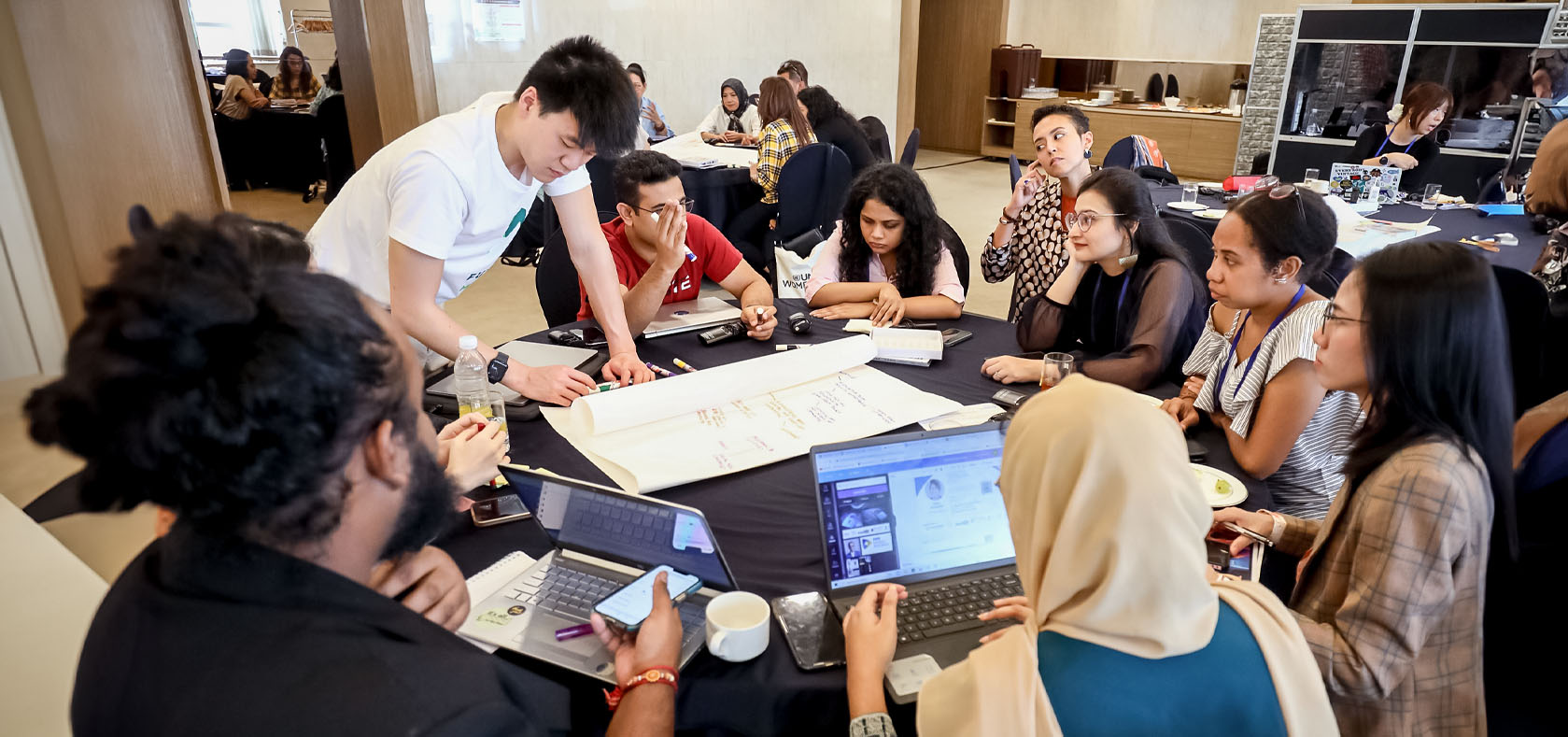
Youth leaders from the 30 for 2030 Network work on a toolkit on ending online violence against women. They convened at a UN Women-organized training on 24 August 2023 in Seoul. Photo: UN Women/Kwanju Kim
Many of the participants in the training belong to the 30 for 2030 Network. The network, established by UN Women Regional Office for Asia and the Pacific in July 2023, tries to accelerate progress toward the United Nations 2030 Agenda for Sustainable Development from a feminist perspective. It includes young decision-makers, civic and business innovators, feminists, entrepreneurs, technology pioneers, educators, activists, artists, journalists, and others.
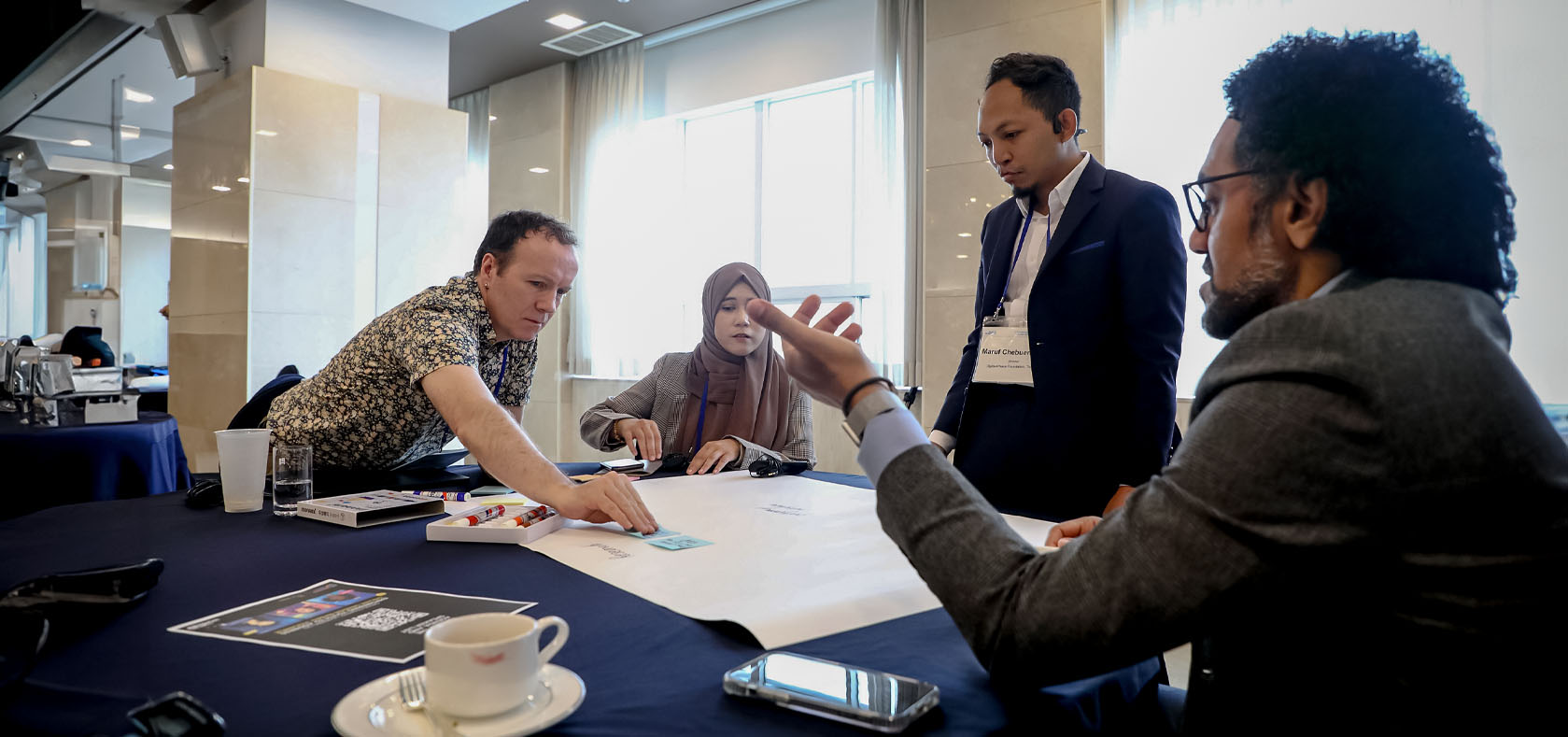
Michael Flood, Fatin Jamjuree, Maruf Chebueraheng, and Emad Karim (from the left) engage in the 2023 action plan for the toolkit activation. Photo: UN Women/Kwanju Kim
During the training, the participants reviewed the current evidence and patterns of violence facilitated by technological advancements and the legal systems and initiatives to stem such violence. They emphasized the need for international guidance on ways to develop and expand legislation and policy actions.
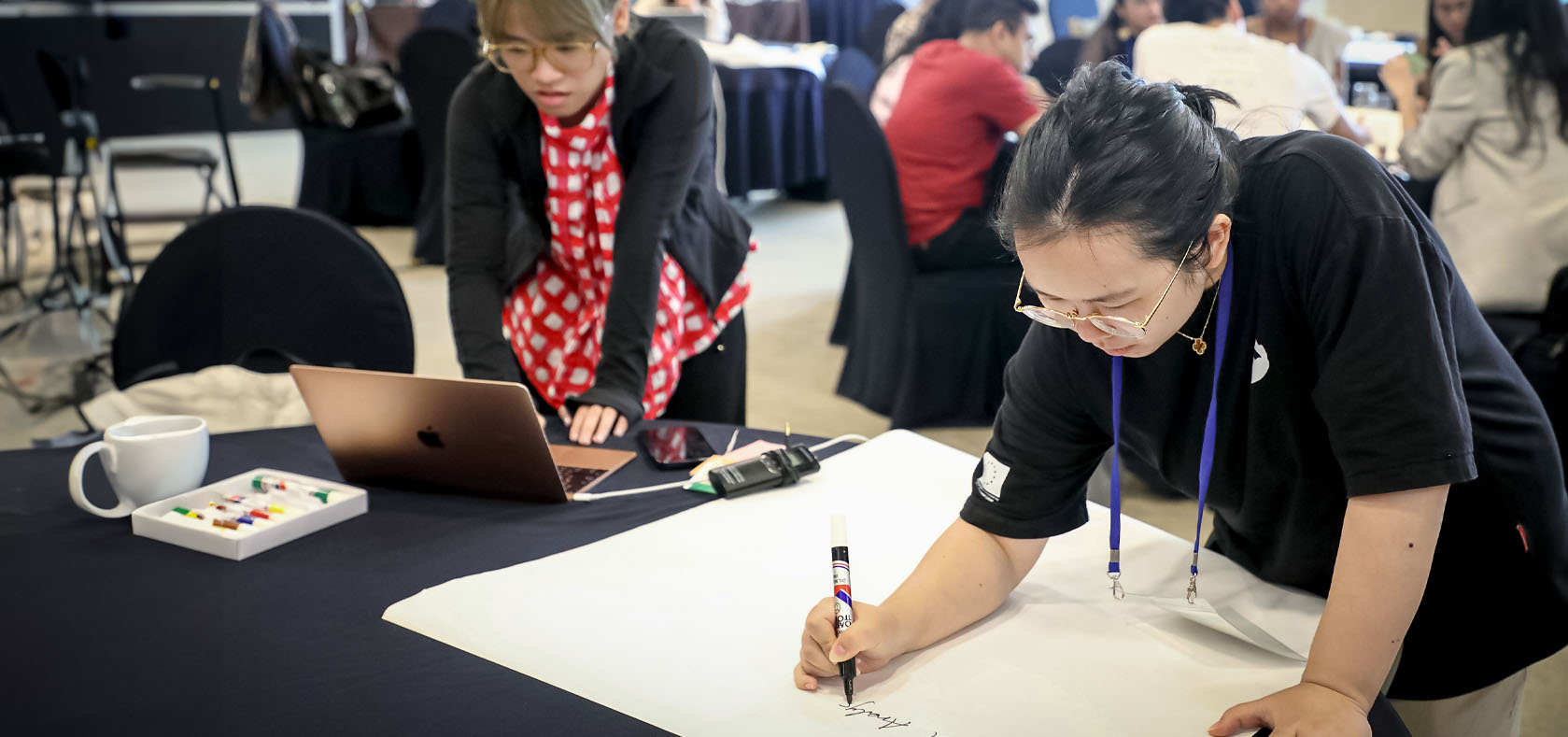
Team China is identifying specific actions that they will take to prevent and address OGBV in China. Photo: UN Women/Kwanju Kim
Amy Lamoin, Global Programs Director of Child Fund Australia, introduced a curriculum that strengthens one’s practical skills, knowledge, and behaviours to negotiate the online world safely. Natalie Au, Programme Manager at 2X Global in Singapore, shared the prototypes on technology-facilitated gender-based violence created by Tech Policy Design Lab. Ranhee Song of Korea Women’s Hotline spoke of how the hotline provided services to survivors of such violence and helped to amend laws and establish comprehensive government measures.
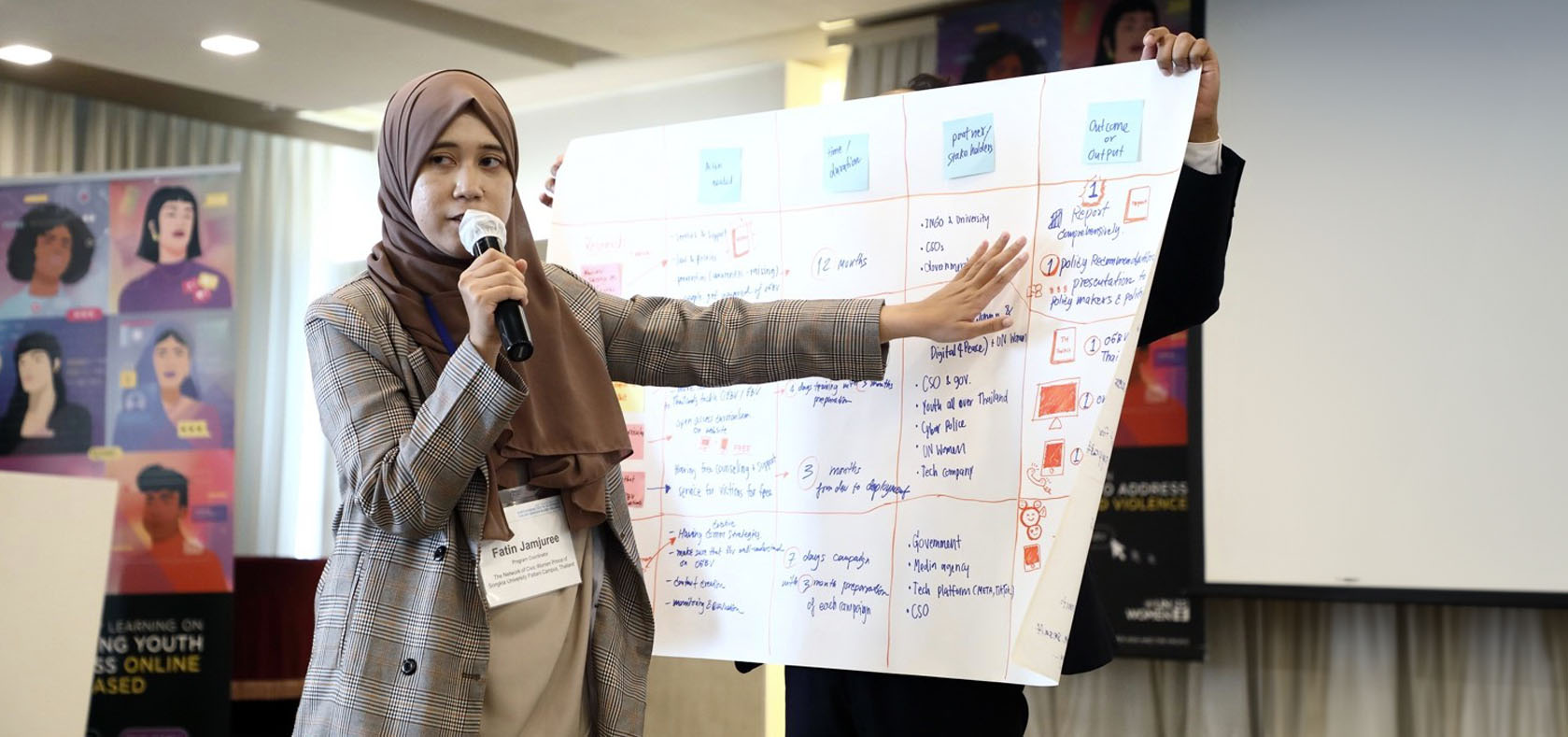
The participant, Fatin Jamjuree, is presenting the action plan on behalf of the group. Photo: UN Women/Kwanju Kim
The youth leaders discussed their challenges in responding to the violence in their communities, including the lack of data, limited human and financial resources, and limited focus on gender-transformative technology.
Hafsah Muheed, the founder of Amplifying Impact, a civil society organization in Sri Lanka that helps marginalized people, said: “There is a lack or absence of data available for tech support to prevent technology-facilitated gender-based violence for youth. Successful legal casework and especially the national level research is also limited.”
Seongmi Oh, Deputy Director of the International Cooperation Division of the Ministry of Gender Equality and Family in Republic of Korea, said: “Technology-facilitated gender-based violence is being more diverse and complex, evolving with the advancement of new technology, and it is important to strengthen the policy efforts at the national level and act together at the global level.”
Members from 30 for 2030 Network said youth-based organizations could collaborate with UN Women country offices to raise public awareness of this violence, and make the information accessible to women with disabilities, rural women and ethnic minority women.
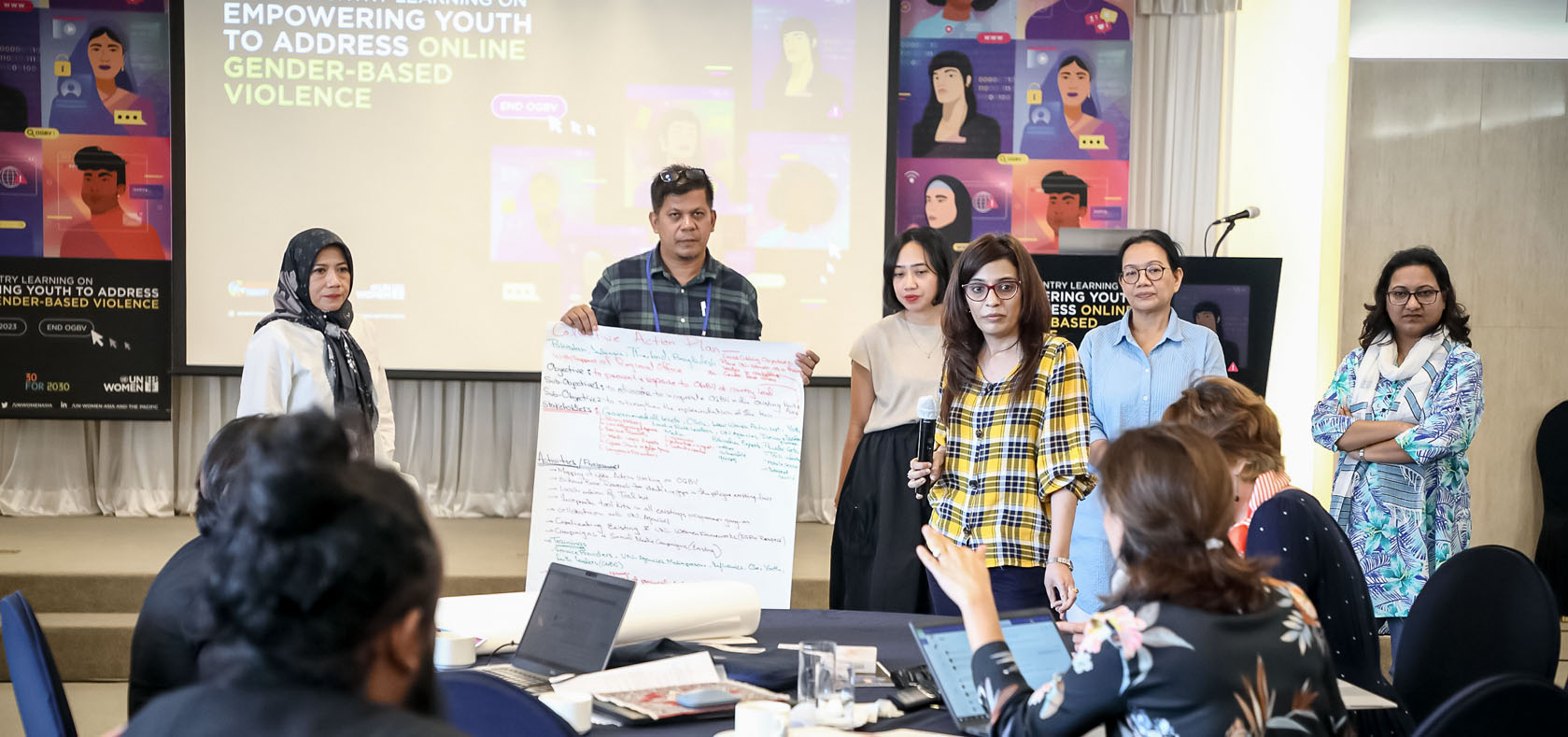
Melissa Alvarado, Specialist of the Ending Violence against Women Regional Programme, is commenting on the collective action plan facilitated by Pakistan, Indonesia, Thailand, and Bangladesh. Photo: UN Women/Kwanju Kim
The participants discussed the second edition of the Youth Guide to End Online Gender-Based Violence Toolkit, which was later released on 6 December 2023, during the annual United Nations 16 Days of Activism to End Violence against Women. The toolkit is produced by the 30 for 2030 Network with support from UN Women Centre of Excellence for Gender Equality, which is funded by the Government of Republic of Korea.




